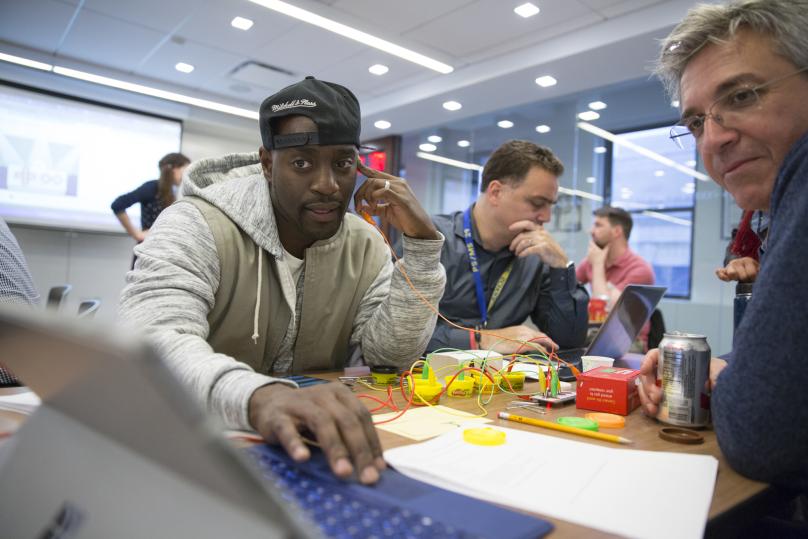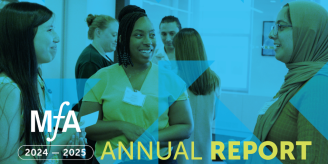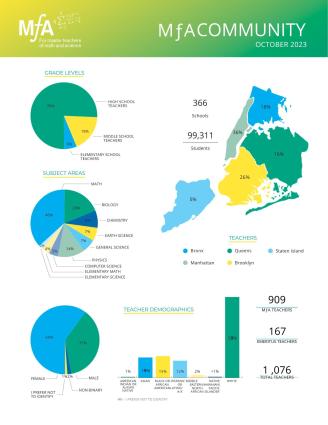
MƒA Impact
MƒA regularly collects qualitative and quantitative data from teachers in the fellowship community which is used for program administration and program evaluation. In addition to using this data internally to continually improve the fellowship experience for teachers, we share what we learn about MƒA’s impact in a variety of formats, including public-facing reports and special communication pieces such as MƒA Stories.
The reports below provide an overview of our community of teachers, highlight the dynamic and evolving range of innovative professional learning experiences our teachers are engaged in, and demonstrate the ways in which MƒA teachers are bringing new ideas about STEM teaching and learning to classrooms and schools across New York City.
Recent Reports
MƒA Annual Report 2024-25

At MƒA, we believe that making it possible for expert teachers to collaborate, learn, and lead strengthens our education system and is the best way to ensure all students get the education they deserve. MƒA continues to be a model for the profession that shows how it might evolve. During the 2024-2025 school year, MƒA continued to grow, and we remain on track to return to our pre-pandemic level of 1,000 teachers by 2026. Many innovations adopted during the pandemic, such as virtual programming, are now simply standard practice at MƒA, and we have found a balance between in-person and remote options that allow us to reach teachers in efficient, novel ways without sacrificing the human connections that empower our community to thrive.
The 2024-25 Annual Report provides a portrait of our teachers, their accomplishments, and their communities. Sections covering admissions and recruitment efforts, professional development and programming, and teacher impact.

MƒA Fact Sheet
This two-page report provides the most up-to-date data about our current MƒA teachers, explains our fellowship model, and demonstrates MƒA’s impact.